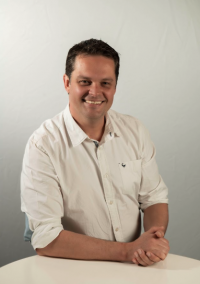Google AI/ML solutions are enabling SA innovators to boost business for their customers – quickly and easily. This is according to Digicloud Africa, Google’s chosen reseller enablement partner in Africa.
“Google Cloud and AI tools are helping our partners to work smarter and faster, solving key business problems for their customers,” says Gregory Maclennan, the CEO of Digicloud Africa.
These include innovators such as Spatialedge, a Digicloud Africa partner and AI and data science solutions provider based in Stellenbosch, which is using Google’s AI tools and the Google Cloud Platform to build cutting edge machine learning solutions to solve real business problems for leading enterprises.
With customers such as the Vodacom group of companies, Pep and Ackermans, Spatialedge has grown solidly since 2017, and now has a team of 85 data engineers, data scientists, machine learning engineers, and software developers. Spatialedge was recognised as one of the Startup City Top 10 African tech startups of
2022.
Spatialedge Commercial Director Pierre le Roux says the company focuses on AI and machine learning solutions, combining human intuition with machine intelligence for optimisation, scenario planning, forecasting and decision applications. “We focus on solutions that will create the most business value for our clients,” he says.
Working with many consumer-facing clients in the retail, financial and telecoms sectors, as well as agricultural and mining customers, Spatialedge takes traditional forecasting and modelling a step further using ML/AI.
“It’s so much more than a human can do with conventional tooling. By adding our tooling to their arsenal, they can make more timely and profitable decisions. We have seen our customers make millions more in monthly profits because of the operationalised models, ” he says.
Big data analysis and modelling demands significant infrastructure resources, he explains. If tools and resources are constrained or complex to use, they can slow down work.
“Many of our customers need the machine learning solutions to be rapidly implemented due to the opportunity cost, so spending time fighting with tools is unnecessary” he says. “Ease of use is also crucial for us – when systems are simple and responsive, they create a level of joy for our developers. We don’t want them jaded and burnt out, we want them to be happy and productive at work.”
Le Roux says the Google Cloud platform addresses Spatialedge’s needs, making work faster and easier for the team. “Our focus is technology agnostic, but if during an engagement we have a choice in the technology, hands down we would recommend using the Google Cloud platform. It offers ease of use, and developer friendliness. Engineers can quickly spin up instances, start ingesting data, and solve the problems they need to solve. Google also brings out a lot of bleeding edge beta tools we enjoy trialling and exploring if it helps us to solve the problems better, ” he says.
Le Roux says the Spatialedge team has been harnessing the capabilities of Google’s Vertex AI unified data and AI platform, which enables users to build, deploy and scale ML models faster. “We started using the Google Cloud Platform some years ago, before the Vertex AI platform was mature. We started out using plain notebooks in containers running on the Kubernetes engine and accessing BigQuery. Once Vertex AI matured, we migrated a lot of our workflows to the platform, ” he says.

“Google Cloud and AI tools are helping our partners to work smarter and faster, solving key business problems for their customers.”
“The Vertex AI Workbench, for example, was a big win. It allows our machine learning engineers to work from one consistent image. When you’re trying to build models, you must fit a lot of data into memory and the constraints in the environment slow work down. Some of the Notebooks we are using have around 240GB of RAM allocated to them and 64 virtual CPUs. Having the ability to scale this up and down as necessary is a major advantage.
When you’re working on an on-premise platform, you have a fixed level of capacity. If several team members use excessive resources, this can compromise the performance of others working on the same cluster. In the cloud, you don’t have this issue. You can use as many resources as your wallet allows.” Le Roux says: “The ability to scale up in one area and simplify our workflows when exploring data and building models is a big win for us. These Notebooks are beautifully integrated with all the other tools within the Google Cloud Platform.”
“Vertex AI also makes it easy to integrate and put the models we develop behind an API, making it possible to put everything behind a user interface that matches our clients’ requirements. It also reduces the gap between machine learning engineers and data scientists, allowing both teams to be more productive,” he says.
Spatialedge also harnesses the Vertex AI Feature Store and Workbench, Google Kubernetes Engine, Cloud Composer orchestration system, CI/CD Pipeline on Cloud Build, Looker BI Platform with embedded analytics, and BigQuery Enterprise Data Warehouse. Where “BigQuery is one of the nicest warehouses to work with – it’s easy, fast and developer friendly,” Le Roux says.
He says: “Google Cloud platform has a plethora of tools, and they are all developer friendly and support speed. We gain scalability, and we can work faster, better, and with consistency.”






Leave A Comment